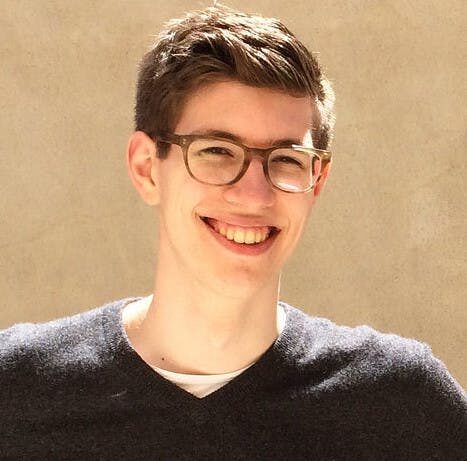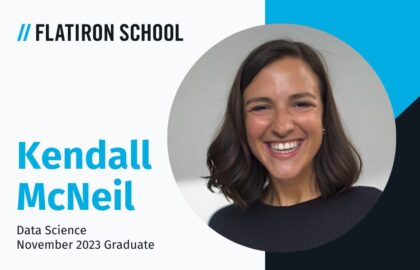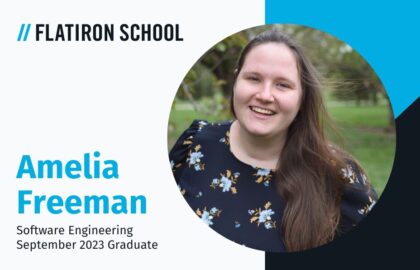Alex Wilkinson had a passion for computers starting at a young age, but never considered it to be more than a hobby. He focused on writing for years, but after a stint at the New York Times Research and Development department, he realized a new potential career calling. About a year after graduating from Flatiron School's adult immersive, Alex talks about the new app he's developing in his spare time and why English majors actually make some of the best developers out there.
When was your first major exposure to code?
I was always pretty interested in tech and tinkering with computers. I started tinkering with Windows to make it as much like a Mac as possible as a teenager, though I never thought of myself as a programmer at the time.
How did you make the leap from working on newspapers to deciding to code?
I stuck with and ultimately I kept writing after my newspaper work in college. I got the opportunity to work at the NY Times Research and Development department and being exposed to the engineers there, I figured I would go for it. I always assumed that computer science degrees in college weren’t for people with my skill set. Now that I’ve gone through The Flatiron School program and talked to my co-workers, it is actually a lot about algorithms. I just needed a different type of program like Flatiron School to see how connected I was to the field.
I always assumed that computer science degrees in college weren't for people with my skill set…I just needed a different type of program like Flatiron School to see how connected I was to the field.
What kind of coding side projects do you do in your spare time?
I’ve always been interested in providing data about media and making it easier for people to discover media they like. I’m trying to take that to the next level: save any media you find in the course of your day — track a book or an author or a musician or a movie. figures out what you’re searching for and then it provides data when something changes about it. I want to build something that provides that context whenever you come back to it, and I’m trying to learn more about JavaScript Frameworks to build it.
How did you fit in working with people who mostly had computer science degrees?
My boss was pretty impressed that Flatiron School could get me to a level where I was ready for the real world. He found a lot of merit in that approach and I was just very happy to find that my hopes of becoming a programmer actually resonated in the real world. The fact that I have this different path and my English background makes me a different programmer than anyone else.
How does your background in English and writing affect the way you code?
Most of what we do at work is talk and think. We argue our place because we want to come to the best solution, and then we code after we talk. All of those English skills I developed — the newspaper management, trying to get to the kernel of thought before I speak or think — that helps me write clear code and write even clearer explanations on the code. It’s funny how much that background comes to bear everyday.




